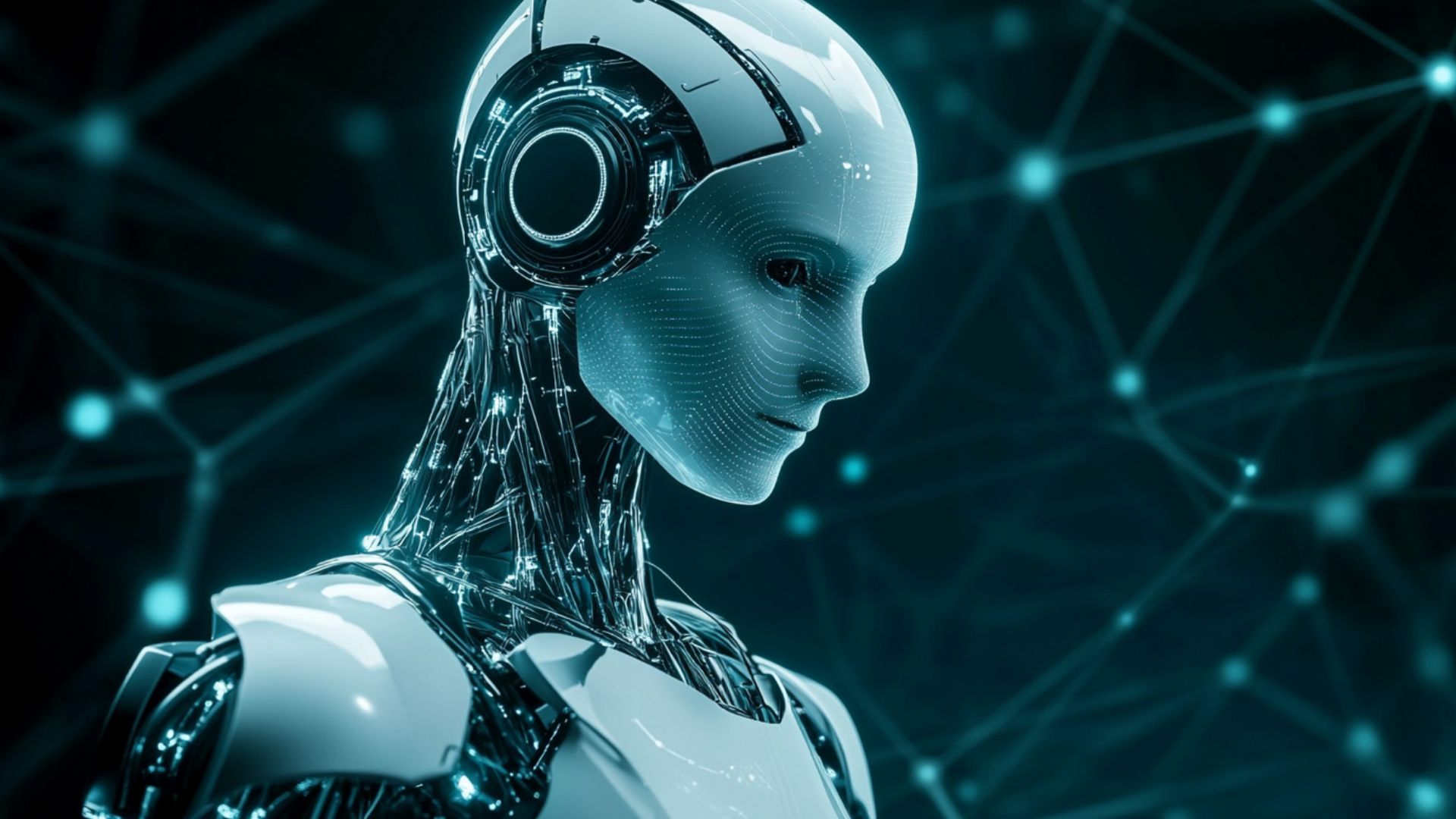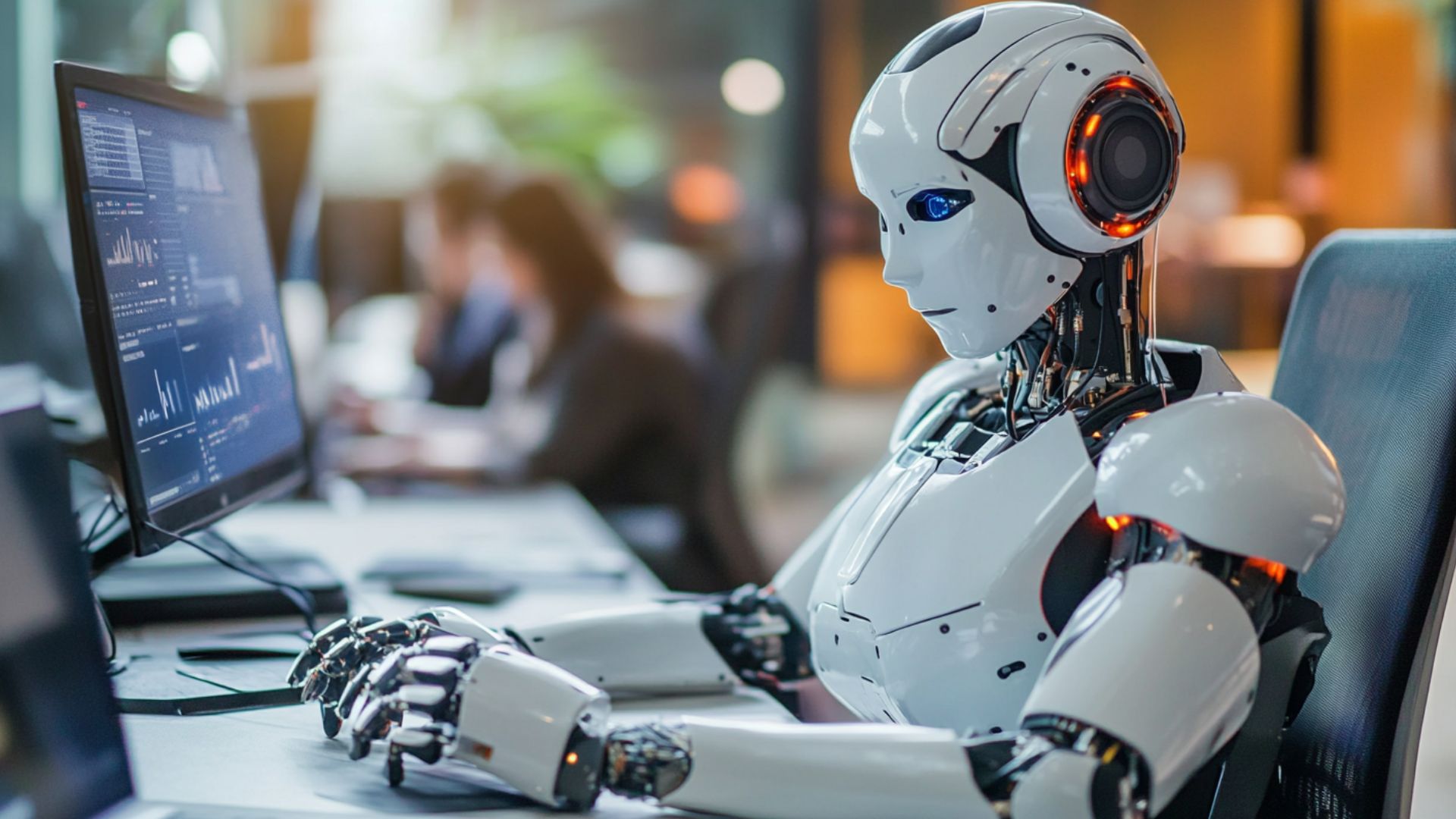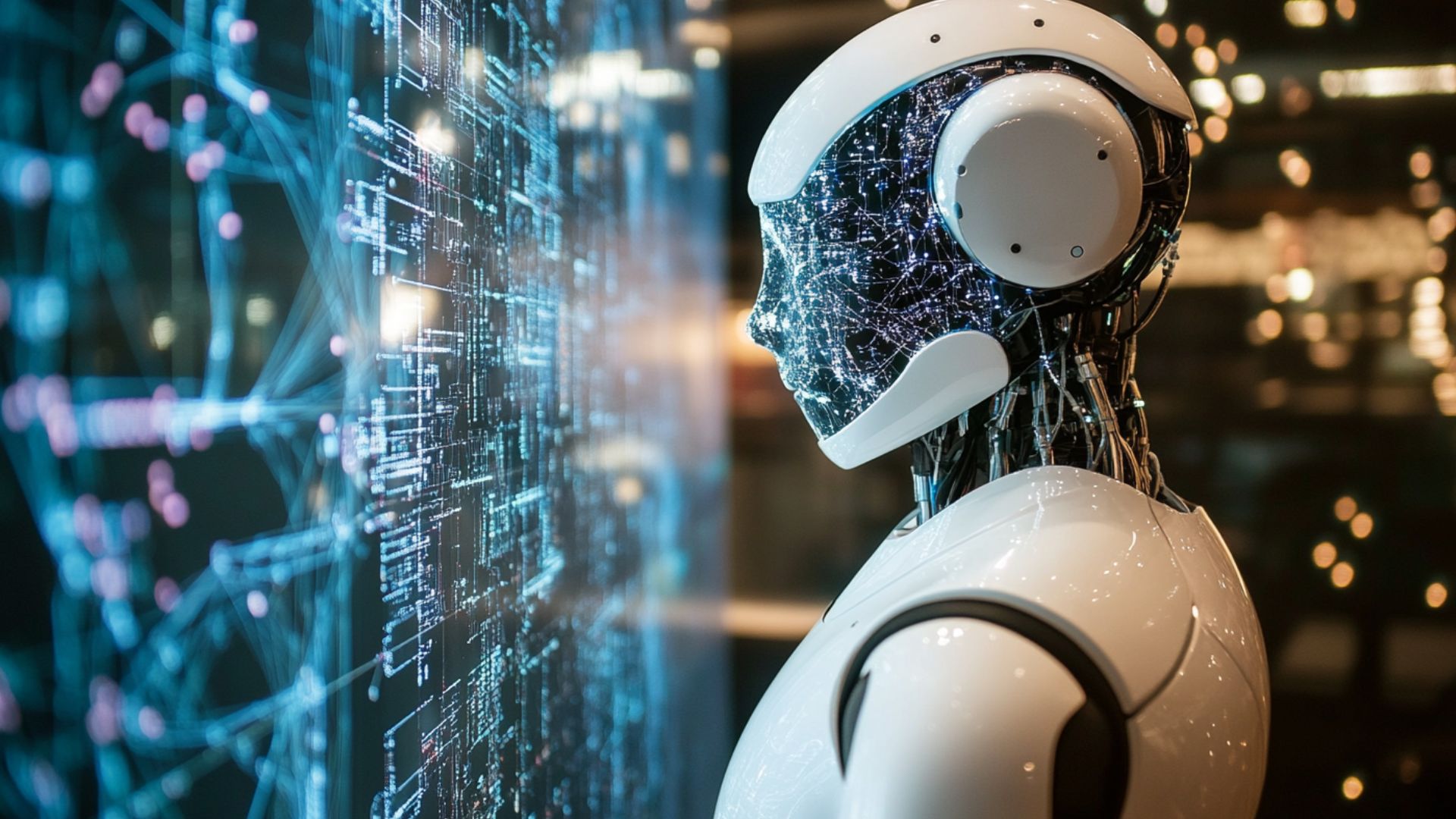Everyday AI: Transforming Daily Routines and Enhancing Lives

Smart technologies have become an intrinsic part of our lives and transform every aspect of our lives. Artificial intelligence (AI) is quietly working behind the scenes that affects every part of our day. AI makes our routines more efficient and personalized. Its growing prevalence is a technological trend. This is a significant shift that enhances the overall quality of life. Everyday AI is now embedded in everything and ranges from our smartphones and home devices to the services we rely on for work and entertainment. It is crucial in simplifying tasks.
AI offers personalized recommendations and automates routine processes. Let’s explore how it shapes various aspects of our daily living. By the end, you'll see how this technology is not just improving our routines. It also enriches our overall experience of modern life.
Understanding Everyday AI and Its Applications
AI refers to the use of v that are seamlessly integrated into daily life. They make everyday tasks more efficient, personalized, and effortless. More complex or specialized AI systems are typically used in industries, such as healthcare or finance. AI is designed to assist individuals in routine activities. It is often without the user realizing it’s working behind the scenes. Critical characteristics of everyday AI include automation, personalization, and adaptability. All of them help improve convenience and productivity in everyday tasks.
One of the most common applications of AI is in personal assistants. Siri, Alexa, and Google Assistant. These AI-powered tools help users manage their schedules, send messages, and set reminders. They can even control smart home devices, all through simple voice commands. Similarly, smart home devices are thermostats, security cameras, and lighting systems. They use AI to learn user preferences and adjust settings accordingly. It makes homes more energy-efficient and secure.
In health monitoring, AI is revolutionizing how we track and manage well-being. Smartwatches and fitness trackers use AI to monitor heart rate, sleep patterns, and activity levels. It provides personalized insights and recommendations to improve overall health. For people managing chronic conditions, AI-powered health apps can offer real-time monitoring. It even notifies users of potential issues before becoming serious.
There are some other critical applications of AI:
- Recommendation System: AI helping people with grocery shopping.
- AI-Powered Entertainment Platforms: They suggest music, shows, or movies based on preferences.
- AI-Driven Navigation: These systems optimize travel routes in real time.
- Smart Assistants: They manage emails, schedule meetings, and prioritize tasks.
Personal Assistants and Smart Devices
AI devices transform how we manage tasks and streamline our routines. Siri, Alexa, and Google Assistant have become indispensable tools that allow users to perform various tasks simply by using their voice. These AI devices help in daily life from setting reminders to sending messages. They also provide weather updates or control smart home devices. They can even play music, answer questions, and manage schedules. All assistants are tailored to individual preferences.
AI devices have revolutionized household efficiency and convenience. These include thermostats, lights, and security cameras. AI learns user behaviors and automatically adjusts settings. For example, a smart thermostat can help you when you’re home or away. It adjusts temperatures to save energy while ensuring comfort. AI-powered intelligent lighting systems and robotic security cameras can change based on the time of day or activity. They offer real-time monitoring and even alert homeowners of unusual activity.
Other devices can help with everyday life:
- Smart refrigerators: Tracking groceries and suggesting recipes.
- Voice-controlled assistants: Using for the hands-free operation of household appliances.
- Robotic vacuums: Autonomously cleaning floors. Such vacuums do it much better than standard models.
These innovations showcase how smart devices are making our homes smarter and also optimize our routines more efficiently. AI devices in daily life were created to make our lives easier.
AI in Health and Wellness
The impact of AI in everyday life is especially evident in the health and wellness sector. It has become central to these aspects. AI involves many benefits. They are concerned with improved health monitoring and fitness insights. Benefits also include mental health support. Here are the advantages of AI in daily life:
- Health Monitoring and Fitness: Wearable devices are smartwatches and trackers. They use AI to monitor essential health metrics. These are heart rate, sleep patterns, and physical activity. AI-powered algorithms analyze this data. They offer personalized fitness recommendations. AI alerts users to potential health issues before they escalate. This technology supports early intervention. It helps users make proactive health choices.
- Mental Health Support: AI has also significantly progressed in mental health and wellness. Virtual therapists and chatbots are now integrated into wellness apps. They provide real-time mental health support that is accessible 24/7. These tools offer guided meditation, mood tracking, and stress management exercises. AI helps users manage their mental well-being. It provides discreet, instant access to support. AI reduces barriers to mental health care.
- Wellness Applications: AI provides users with holistic health support. It creates a balanced approach to mental and physical health. As a result, AI profoundly impacts everyday life. It encourages healthier, more balanced lifestyles that align with each person’s needs.
The impact of artificial intelligence on everyday life, health, and wellness is pivotal. It helps individuals lead healthier, more balanced lives, physically and mentally.
Enhancing Productivity and Efficiency with AI

AI-driven tools transform individuals' time management, schedules, and daily tasks. They lead to greater productivity and efficiency. Here's how:
| AI application | Description | Advantages of AI in daily lives |
| Time Management Tools | AI-driven tools are calendar assistants and time-tracking apps. They help users prioritize tasks and allocate time effectively. AI also allows for the reduction of time wastage. | AI improves scheduling accuracy and minimizes manual input. It also helps users focus on high-priority tasks. |
| Smart Scheduling Assistants | These AI applications analyze users' calendars and suggest optimal meeting times. They balance personal and professional commitments. | Scheduling assistants reduce the back-and-forth of manual planning. They help manage multiple commitments. |
| Task Automation | AI tools are significantly helping people. They automate email sorting, reminders, and data entry. Such tools free up time for more strategic work. | Automation tools increase productivity. They lower the risk of human error in routine tasks. |
| Workflow Optimization Tools | Project management platforms use AI to assign tasks, set deadlines, and monitor team progress. | Workflow tools enable seamless collaboration. They make tracking project milestones and task status easy. |
| Virtual Meeting Assistants | AI-driven meeting agents join video calls, take notes, and highlight action items. They help to ensure efficient follow-ups. | Virtual assistants help maintain focus during meetings. They align team members on action steps. |
| Intelligent Reminders and Alerts | Intelligent alerts notify users of important tasks, deadlines, and appointments. They optimize their daily routines. | Intelligent reminders reduce the mental load of managing numerous tasks. They make daily planning easier. |
The technology we use every day has become essential for enhancing productivity. AI tools simplify task management. They empower users to make data-driven decisions. These solutions are about their time and workload.
Task Management and Automation
AI-powered task management tools are reshaping how AI will change our lives. They simplify daily routines and improve productivity. Here is how AI is going to change our lives:
- Automating Routine Tasks: Automation reduces the burden of repetitive tasks. It uses AI to handle reminders, notifications, and follow-ups. This functionality helps users keep track of projects without constant monitoring. Automation allows for a more streamlined workflow.
- Improving Focus: Individuals can dedicate more attention to high-priority work. This is possible with fewer manual tasks. They boost their focus and overall efficiency.
- Popular AI Task Management Tools: Todoist and Trello are technologies we use every day. Todoist uses AI to prioritize tasks, set reminders, and suggest deadlines. It helps users stay on top of their to-do lists. With its visual boards and AI-driven automation, Trello enables teams to collaborate efficiently. It organizes tasks, assigns deadlines, and tracks progress in real time.
AI’s role in task management tools saves time and enhances focus and mental clarity. It drives greater productivity.
AI in Transportation and Travel
AI applications have transformed transportation and travel. They make commutes more efficient and convenient. Let's explore artificial intelligence applications in daily life:
- Navigation and Traffic Management: Google Maps and Waze use real-time data to optimize routes. They also predict traffic patterns and suggest the fastest paths. These applications help users avoid traffic jams, road closures, and accidents. These apps save considerable time.
- Ride-Sharing Services: Uber and Lyft rely on AI to match riders with drivers quickly. They optimize routes and calculate fares. AI analyzes rider demand, driver availability, and traffic conditions. It ensures smooth and efficient rides. AI makes ride-sharing one of the critical uses of AI in everyday life.
- Public Transportation: AI enhances transit systems by predicting arrival times. It adjusts schedules based on demand and helps cities optimize routes. This results in improved reliability for commuters and shorter waiting times.
- Airport and Airline Operations: AI also supports flight scheduling and baggage handling. It also helps with real-time updates on delays. AI makes travel less stressful and more predictable.
AI saves time, reduces fuel consumption, and improves overall travel experiences. This makes it an indispensable part of modern transportation.
The Social Impact of Everyday AI

AI increasingly influences how AI affects society, especially social interactions and relationships. Its effects range from virtual assistants to social media algorithms. AI shapes how we communicate, connect, and navigate our daily lives. Consider the following:
- Enhancing Communication: Chatbots and virtual assistants like Siri and Alexa are AI-powered platforms. They facilitate more accessible communication. Such as answering queries, managing schedules, and providing personalized recommendations. This improves efficiency in personal and professional settings. AI allows individuals to focus on more critical interactions.
- Social Media Influence: Social media platforms use AI to personalize content feeds. They also target users with content tailored to their interests. This can help people connect with others with similar interests, fostering communities. However, this may also lead to echo chambers. There, users are exposed only to similar viewpoints. They potentially hinder diverse, meaningful discussions.
- Benefits and Challenges: How AI can improve our lives is evident in its ability to reduce mundane tasks. They improve efficiency and support personal growth through customized recommendations. However, the challenges include privacy, data security, and over-reliance on technology. They may diminish human connection and lead to isolation.
AI enhances efficiency and convenience. It also presents challenges. They maintain meaningful, human-centered relationships.
Future Trends in Everyday AI
AI continues to evolve. We can expect several upcoming advancements in AI technology. They will further enhance daily life. These advances will make our interactions with technology more seamless and intuitive. Here are they:
- Smarter Virtual Assistants: They will become increasingly intelligent. Virtual assistants will anticipate our needs and offer proactive suggestions. AI will likely predict tasks, preferences, and even emotional states. They will enable a more personalized and responsive experience.
- AI-Enhanced Health Monitoring: AI-powered wearable devices will become even more advanced. They will offer continuous health monitoring, predicting potential health issues before they arise. These devices will provide practical recommendations. These everyday AI technologies will help people maintain better physical and mental health.
- Autonomous Vehicles: Self-driving cars will revolutionize commuting. They will make travel safer and more efficient. AI will optimize traffic flow, reduce accidents, and allow individuals to utilize commute time for other tasks. It will improve overall productivity.
- AI-Driven Smart Homes: AI integration in smart homes will grow. Devices will become more intuitive and responsive. AI will manage home energy usage, automate daily tasks, and enhance security. It will offer convenience and energy savings.
However, with these advancements come ethical considerations and challenges. These include:
- Privacy Concerns: AI collects and analyzes vast amounts of personal data. It ensures security and privacy, which will be crucial.
- Job Displacement: Automation driven by AI may displace specific job categories. They require adaptation and reskilling of the workforce.
- Bias in AI: The risk of bias in AI algorithms needs to be addressed. It will ensure fairness and equity in decision-making.
Despite these challenges, why AI is good for humanity lies in its potential to enhance efficiency. It also improves health outcomes and streamlines daily tasks. This makes AI a powerful force. Follow Newo.ai to check up on the latest news at first.


